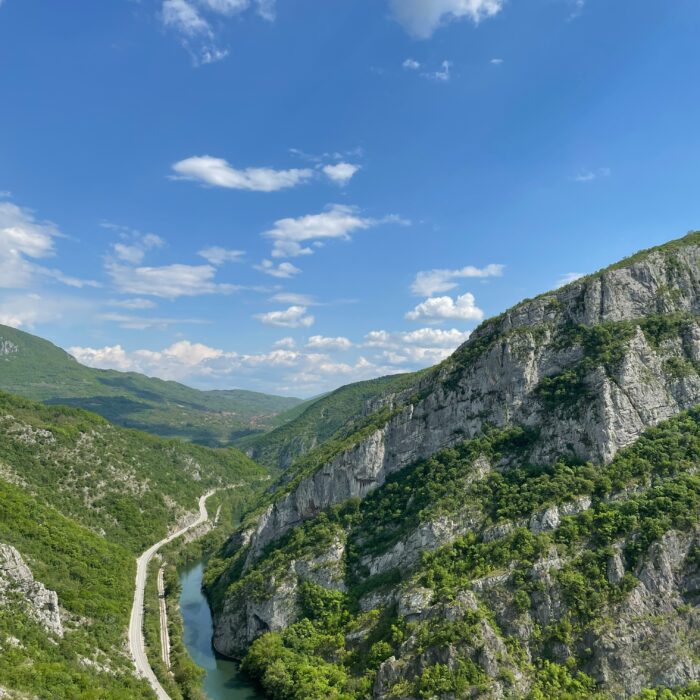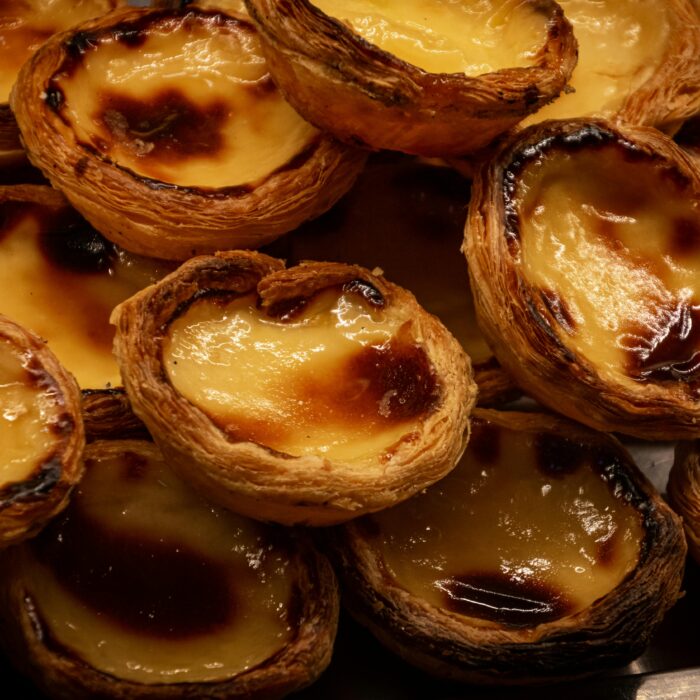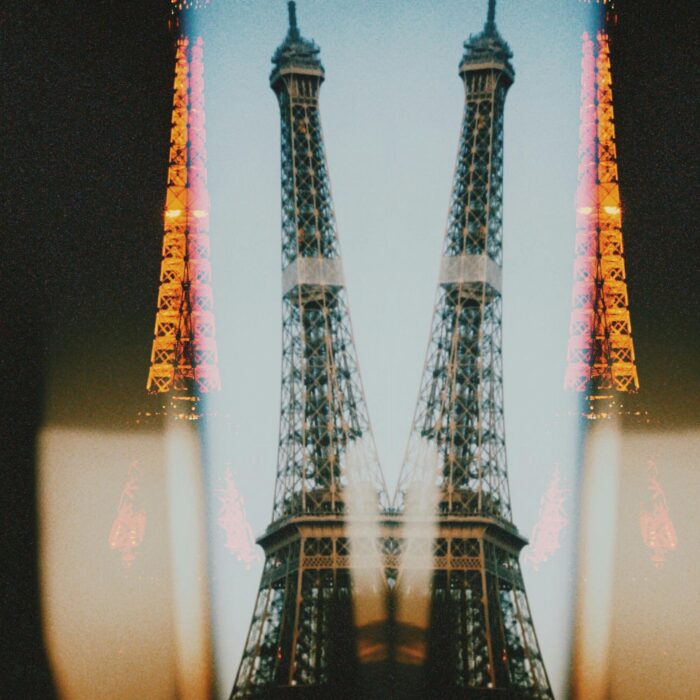You have no items in your cart. Want to get some nice things?
Go shoppingI had a conversation with an old man who was a stranger a few weeks ago. He told me he had fought in the war. I asked him if the time we now live feels like a different world completely. He said yes. It is a different world – this is the world of Twitter and Facebook, iPhones and HTCs, the world of same-sex marriage and the first black President, the world of fighting for gender quality and transgender rights.
Jill Soloway’s acclaimed Amazon Prime series, Transparent, only a few months ago released it’s second season to a slur of acclaim. More than acclaim – wonder, intrigue and above all, respect, to its discussions of sexuality, gender, feminism, family, love, sex and so many more things. I took a lot from it. The Pfefferman family are set to examine their own lives when the father, Mort, comes out as trans and goes by Maura. In season two, they’ve come along way with their acceptance but still have questions. I walked in the Pfefferman’s footsteps during the two day binge for days, weeks, after. One thing I took from it, though, one thing, among all the other things, was the concept of ghosts.
Transparent’s second season did something new and strange. During the first episode, in which Sarah, the eldest daughter, marries her lover, Tammy, the family dance. We then have a flashback to Berlin, 1933 in which a party of queer folk are dancing too. The camera remains on one trans woman, dark haired, elated, wearing a slim dress, high heels and perfect make-up. The woman is Gillet, Maura’s aunt. As she dances, her sister and Maura’s mother, Rose, younger and strong, brings them shots.
One of the most touching episodes – talked about a lot by critics – is ‘Man On The Land’ in which Maura and her daughters, Ally and Sarah, go to Idyllwild, a festival of poetry, BDSM tents, spiritual meetings, etc. There is a rule, however, that only “womyn born womyn are allowed”. When men enter, the women band together and yell “man on the land! Man on the land!” This episodes is important for a multitude of reasons – the idea that radical feminism can create prejudices against trans people, primarily transwomen, the discussion of male privilege, of Maura’s previous sexism when a man, the pain of transphobia, among other things. It is also important because it is the time the ghosts of the season are brought right into Ally’s vision. More a hallucation.
Within it, Berlin, 1933 collides with Los Angeles, 2015. Gillet, once dancing, is now being dragged out of the research centre, to which she lives, by men in white and Nazis. They burn the books. They attack the queer folk, some of them resembling mythical forest folk. Rose is there too, watching, devastated. Ally, also, seeing herself in her grandmother. It inspires so many questions about family, about DNA, about blood, about the binding families have no matter their hatred or dislike for one another.
There are ghosts in this season. It is different, new and exciting. There is also poetry and the questioning of sexuality, the idea of gender being a term, a loose coat, easy to take off. When watching it, I was not only inspired in my own work but began questioning what the term ‘ghost story’ really means. When I think about ghost stories, the instant sight is nothing. Ghosts are invisible, rattling around, screaming, creaking doors, hiding in shadows. They come out sometimes. When I think of ghost stories I think of horror.
Within Transparent we have the ghosts of family, haunting pain of times past. I see the pain in my own family as one of dreary tales spread among aunts and uncles and the natural passing of certain members. David Vann’s work is full of ghosts, especially Legend of a Suicide, Vann’s autobiographical series of short stories. In the case of Sukkwan Island, the dark, dangerous, incredible middle story that my tutor once gave me the warning of: “wait until you get to the middle of the book. It will hurt you”, Vann plays around with his father’s suicide. In Vann’s life, his father killed himself. In Vann’s story, he kills himself and his father is left behind. It’s an incredibly twisted idea, beautiful almost, deranged and fascinating. His father is then haunted by his son. The ghost of his son. His corpse. His memory. He buries him and digs him up again. Haunted.
If we are writing about ghosts, if we are creating ghost stories, do we always have to make it horror or can we twist the meaning? Within horror the ghosts – usually – are evil with a purpose to kill and destroy. With Soloway’s Transparent and Ali Liebegett who wrote the episode in question, ghosts are harmless, ghosts are a hallucination, manifestation, intrusion.
*
Maybe, then, the idea of the ghost story is more the idea of haunting – a lurking presence. Andrew Haigh’s 45 Years, starring Charlotte Rampling (as Kate) and Tom Courtenay (as Geoff), a retired married couple about to celebrate their 45th wedding anniversary, is arguably a ghost story. Geoff receives news that his ex-girlfriend has been discovered after slipping into an Alpine crevasse fifty years prior. Immediately, the presence of the ex-girlfriend, Katya, haunts Kate. She smells her perfume and finds a projector full of photos that Geoff has clearly been looking at. Their names are similar. Kate asks Geoff if he would have married Katya if she were alive. He says yes. His heartbreak is her realisation. Katya’s ghost is causing Kate to see herself as a fraud. A ghost in herself. Katya’s replacement. Haigh doesn’t get very close very often, he holds the camera far away. We watch Kate walk along the misty Norwich fields, calling her dog. She is alone, but not alone. She is constantly being haunted by the ghostly presence of Katya.
*
Months before I watched Transparent or 45 Years, months before I had read Shirley Jackson and the fog of Dickens’ Bleak House, I continued to bump into a friend’s brother. We had seen each other around, spoke briefly, had never been the best of friends. We had gone to the same parties in later life. On the street, faced with one another, we continued walking, saying nothing, every time. It felt like being haunted. A reminder. A jolt back to another time. It happened at night. It was raining twice. The sun was fading the third. It didn’t just start me thinking about ghosts but it made me think of the ghosts within us. The ghosts of who we once were. The friend’s brother is probably not the same person he was back then. Nor am I. We do not know each other. We only know old versions.
*
Transparent has put poetry into the ghost story. When Ally meets Leslie Mackinaw, a poet and lecturer in gender studies – a fictionalised version of Eileen Myles, more or less – she becomes transfixed. She reads Leslie’s poetry and the haunting words, the steps into trees and woods, pulls everything around to the time in the woods, again, the time Ally will soon have, watching her great-aunt, her grandmother, the pain of her families past, the ghosts standing around. Poetry streams across the screen in voiceover, haunting around the electric lights:
‘I always put my pussy in the middle of trees,
like a waterfall, like a doorway to God,
like a flock of birds. I always put my lover’s cunt
on the pest of a wave, like a flag I can pledge my allegiance to.
This is my country, here when we’re alone, in public.
My lover’s pussy is a badge, is a nightstick,
is a helmet, is a deer’s face, is a handful of flowers,
is a waterfall, is a river of blood, is a Bible, is a hurricane,
is a soothsayer.’

Thomas Stewart
Thomas Stewart's fiction, essays and poems have been featured in The Cadaverine, Ink, Sweat and Tears, The Stockholm Review, Agenda Broadsheet, Flight Journal, The Fat Damsel, Lies, Dreaming, Anomaly, among others. His debut poetry pamphlet, 'Creation' is forthcoming by Red Squirrel Press. He has an MA in Writing from Warwick and a BA in English from South Wales. He enjoys folk music and is afraid of the dark. He can be found on Twitter at ThomasStewart08.





